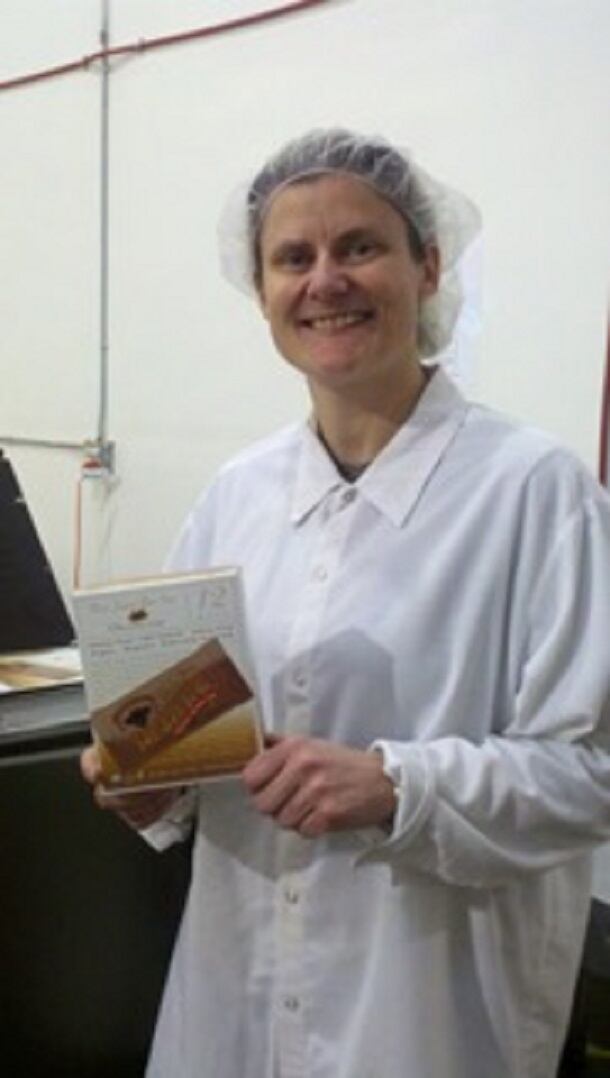As the market for foods fitting these descriptors has exploded, Spokane, Wash.-based BumbleBar Inc. has expanded beyond creating its own branded products into contract manufacturing products for clients with specific nutritional targets.
“We’ve been the happy beneficiaries of a number of food trends that we were initially ahead of the curve on—from organic and gluten-free to sustainable,” says founder and owner Liz Ward. “My goal when I started was to make food so delicious that even people not intrinsically motivated by a strongly held belief in sustainable agriculture or whole food could still support it. Now I get to put out even more nutrient-dense, sustainably sourced whole food for fellow manufacturers.”

Ward founded BumbleBar in Seattle in 1995 with a namesake line of organic (certified in 1996), dairy-free bars she formulated with flax and sesame seeds, brown rice syrup and nuts—flavored with dried fruit and chocolate. The bars are also naturally gluten-free, though Ward didn’t have them third party-certified until nearly six years after they first hit store shelves (and a slew of thank-you letters from customers impacted by celiac disease).
BumbleBar initially targeted local natural grocery stores before getting picked up by Seattle's Central Co-op and the Puget Consumer's Co-op chain, which enabled the manufacturer to get its first distributor.
A reputation for gluten-free and organic formulation
The 20-employee company has relocated twice in its 20 years to support growth; it moved to its current 4-million sq.-ft. facility (a former naval depot) in more-affordable Spokane about 10 years ago. In 2007, it added a new line of date, quinoa and nut butter dessert bars called Juno. It now manufactures 14 flavors of BumbleBars. But Ward’s desire to be challenged creatively, coupled with the company’s reputation for organic and gluten-free formulation took BumbleBar in an unexpected direction.
After years of saying no to manufacturers’ co-packing requests, Ward took on a project helping a company formulate a nutrient-dense, gluten-free cookie.
Now the company works with private label and branded contract manufacturing clients of all different sizes on everything from recipe development to label design and compliance. It manufactures roughly 700,000 units per month—a mix of its own and clients’ products.
Growth is up approximately 100% year to date, with about 20% of business from manufacturing its own branded products and 80% from contract work. Although Ward is uncertain what the future will hold, she plans for contract manufacturing to remain a huge part of the business.
“What I love about this business model is we have direct contact with our customers,” Ward says. “With the way the grocery industry has changed over the last 20 years with consolidation, it has become less personal. We really like being able to work with people directly.”
The company has invested earnings back into upgraded equipment and the construction of a certified gluten-free in-house baking facility, which is helping serve a market that is still in need of more nutrient-dense options, she says.
“I always wanted to formulate products that were baked, but we didn’t have our own gluten-free bakery. That first gluten-free cookie client has really grown and at same time the overall gluten-free market has really grown so we’ve taken on other contract-manufacturing clients as well.”
It also is helping further Ward’s initial goal of spreading the reach of sustainable, organic ingredients. “I believe that organic agriculture has the potential to help heal the earth. And now I get to help steer people toward more sustainably sourced ingredients or more nutrient dense ingredients they may not have gone to otherwise.”
Organic: as much a challenge today as 20 years ago
Still, she admits that despite the meteoric rise of the organic food market in recent years, sourcing all organic ingredients remains nearly as much a challenge today as it when the market was nascent.
“Back then, the internet wasn’t really around, so I was on the phone a lot trying to source our ingredients. It was really, really challenging,” she says. “Since the organic market has exploded, supply hasn’t kept up with demand. It’s a confluence of a bunch of macro factors coming together that result in tremendous price spikes. So it feels in some ways uncertain. But it is uncertain. Where are organic commodity prices going to go? How can we secure our supply?”
Ward herself doesn’t eat or formulate with all organic ingredients all the time, and says that the best approach is a balanced one, though she celebrates every small victory.
“In an ideal world, we’d all eat organic,” she says. “What I try to do with my business is run it from the most sustainable perspective I can, while balancing out the financial cost or repercussions of those decisions. I wouldn’t be able to stay in business otherwise. But I had one client who used conventional rice protein in their bar line, and I was able to flip them to organic and get a cost savings, so being able to make even little changes like that makes me really happy.”
